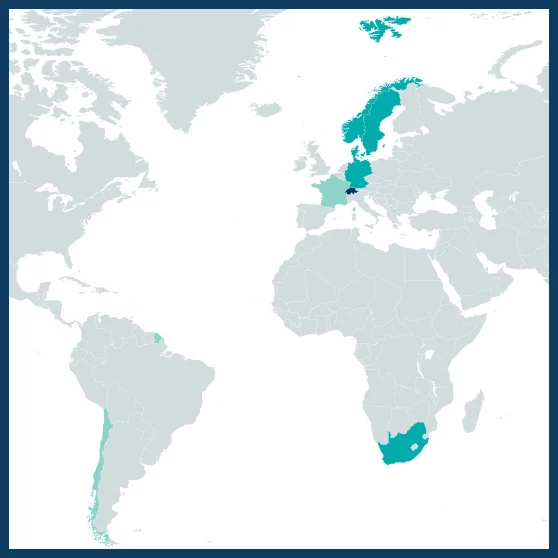01/04/2021 – 31/03/2024
€1,731,214
Prof. Dr. Jake Alexander
jake.alexander@usys.ethz.ch
Coordinator: Environmental Systems Science – ETH Zurich – Zürich – Switzerland
Forestry Sciences – University of Concepción – Concepción – Chile
Bioscience – Aarhus University – Rønde – Denmark
Ecology and Dynamics of Anthropised Systems (EDYSAN) – CNRS/Université de Picardie Jules Verne – Amiens – France
Institute of Biology – Martin Luther University Halle-Wittenberg – Halle – Germany
Biological Sciences – University of Bergen – Bergen – Norway
Norwegian Biodiversity Information Centre – Trondheim – Norway
Afromontane – University of the Free State – Phuthaditjhaba – South Africa
Biological and Environmental Sciences – University of Gothenburg – Gothenburg
– Sweden
Forest Ecology and Management – Swedish University of Agricultural Sciences – Umeå – Sweden

Plants are on the move due to climate change and through biological invasions, many expanding their ranges across elevation gradients. This is resulting in novel biological communities of resident and range-expanding species. But which species will be the winners and losers of climate change, and what their impacts will be on biodiversity and key ecosystem services like carbon storage or pollination, remain poorly understood. There is therefore a need to achieve both a process-based understanding of range expansions, and a shared understanding of this issue between researchers, natural resource managers and policymakers.
The main aim of RangeX is to better understand the processes and impacts of plants that are expanding their ranges following climate warming, and to inform policy regarding range-expanding plant species. Focusing on elevation gradients in mountains, the specific project objectives are to:
• Develop an explanatory framework for the processes driving variation in species’ range expansion with climate warming.
• Quantify the contribution of range-expanding plants to change in biodiversity, ecosystem processes (e.g. carbon cycling and pollination services), and possible climate feedbacks, in mountain ecosystems globally.
•Develop trait-based predictors of range expansion (identifying potential “winners”) and range-expander impact on native biodiversity (potential “losers”) and ecosystem processes.
• Co-develop policy recommendations related to range-expanding species under climate change, with a focus on mountain ecosystems.
RangeX adopts a hierarchical approach, nesting detailed experimental and comparative studies within a global network of researchers and managers studying range expansions of mountain plants. Field experiments will be used to identify mechanisms underlying plant range expansions, including biotic interactions with resident communities above and below ground, and the impacts of range expanding species on carbon cycling and pollination.
RangeX will integrate our experimental results (sites in South Africa, Switzerland and Norway) with detailed vegetation survey data from up to 22 mountain regions around the world (https://www.mountaininvasions.org). This project will involve national and international stakeholders, including natural resource managers as well as national and regional policy makers and government agencies, to synthesise knowledge and co-develop a joint understanding of the challenges and opportunities caused by range-expanding species. Building on participatory workshops and questionnaires, we will co-produce outputs and targeted dissemination strategies to improve awareness and integration of range- expanding species in regional and global policy.